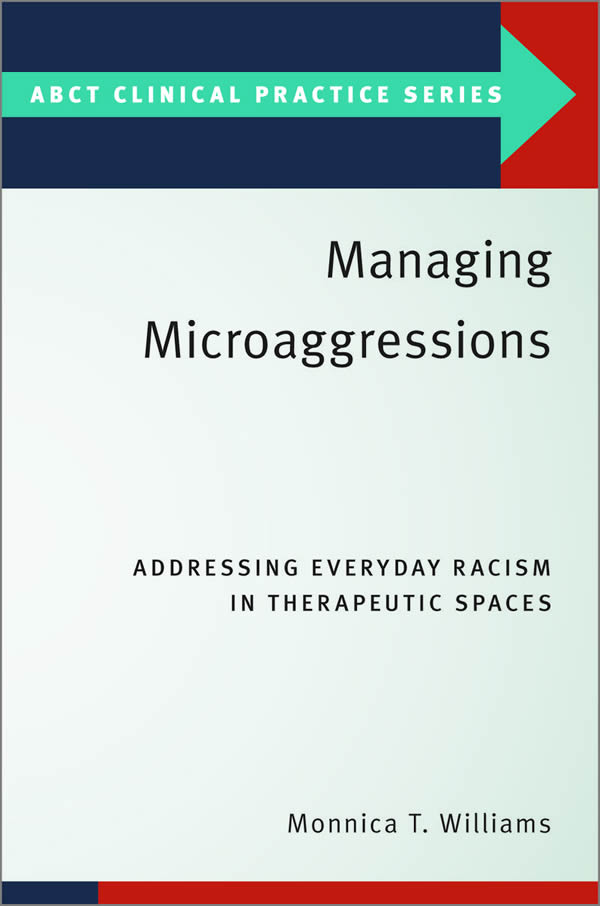Find a CBT Therapist
Search through our directory of local clinicians.
Managing Microaggressions
- The link to the introductory chapter is here. This chapter will be freely accessible for a limited time.
- The chapter linked above is hosted on our subscription-based online resource platform, so there is not a direct link to make an individual purchase. To purchase the book, go to the book’s product page on the OUP website. ABCT members will be able to purchase the book with an exclusive 30% off society discount code, ABCT30, applicable to this book and can be applied at checkout for purchases of the book on the OUP site.
- Microaggressions have been identified as a common and troubling cause of low retention and poor psychotherapy outcomes for people of color. All therapists want and intend to be helpful to their clients, but many unknowingly committing microaggressions due to unconscious biases and misconceptions about people from ethnic and racial minority groups.
- Managing Microaggressions is intended for mental health clinicians who want to be more effective in their use of evidence-based practices with people of color. Many well-intentioned clinicians lack the necessary skills and knowledge to effectively engage those who are ethnoracially different. This book discusses the theoretical basis of the problem (microaggressions), the cognitive-behavioral mechanisms by which the problem is maintained, and how to remedy the problem using CBT principles, with a focus on the role of the therapist. Not only will readers learn how to avoid offending or harming their clients, they will also be better equipped to help clients navigate microaggressions they encounter in their daily lives. Managing Microaggressions will endow clinicians with a clear understanding of these behaviors and the errors that underpin them, leading to more successful therapy.
My Account Info
Manage your Membership information, email preferences, and more.
Journals
Membership in ABCT grants you access to three journals.
Convention
We are now accepting Abstract submissions for Continuing Education Ticketed Sessions at the 2024 ABCT Convention in Philadelphia, PA.
My Account Info
Manage your Membership information, email preferences, and more.
Journals
Membership in ABCT grants you access to three journals.
Convention
We are now accepting Abstract submissions for Continuing Education Ticketed Sessions at the 2024 ABCT Convention in Philadelphia, PA.

